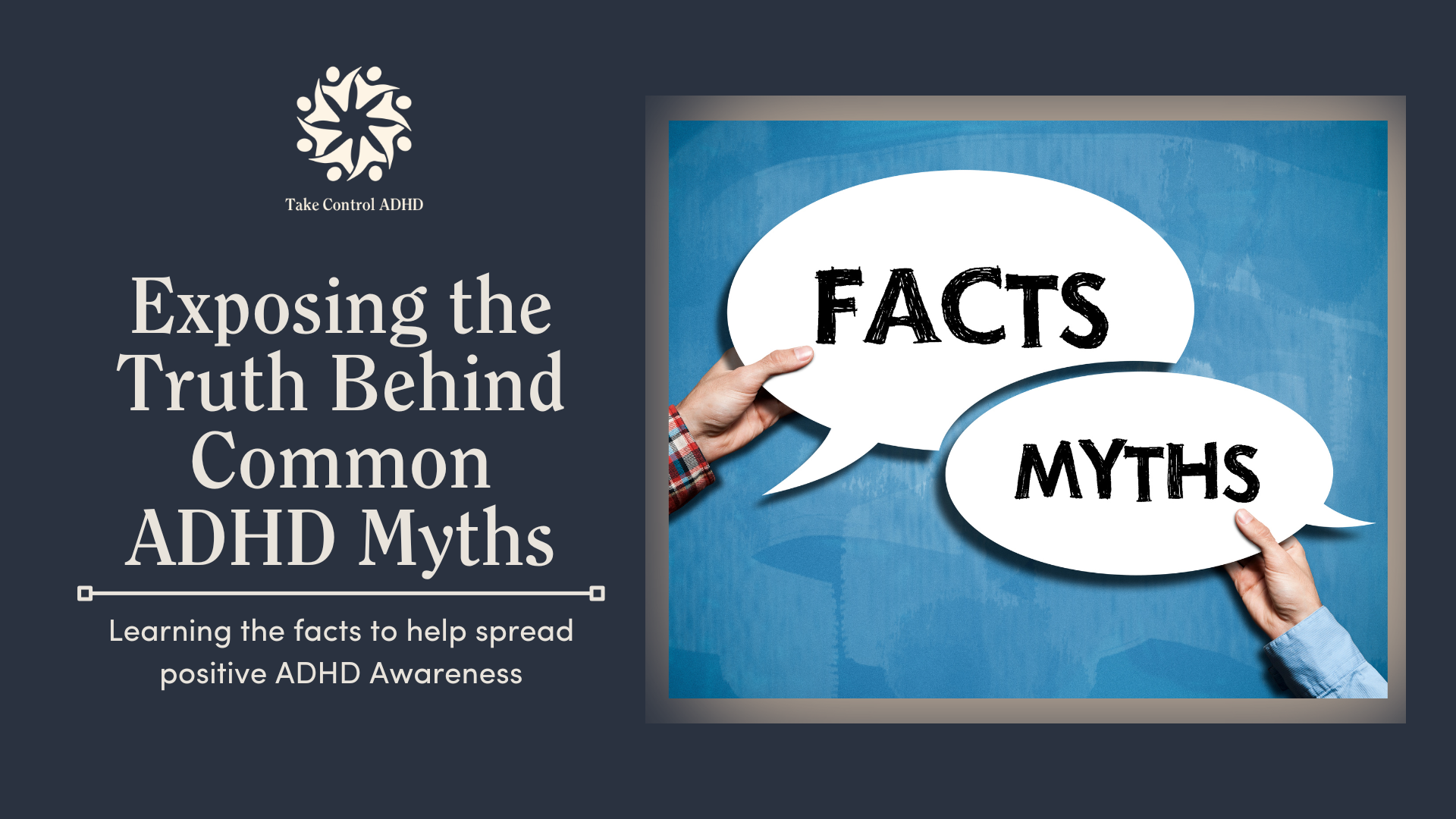Exposing the Truth Behind Common ADHD Myths
During ADHD Awareness Month, many people often ask how they can get involved and increase awareness around ADHD.
If you aren't a certified or licensed "expert" or doctor in the field, you may not feel you are qualified to speak on this topic with authority.
I'm here to tell you that you are an expert. If you live your life each day with ADHD, you have the most knowledge, not just about ADHD, but exactly how you are affected by ADHD each and every day.
But, just in case you would like something more to reinforce what you already know—primarily when you're talking about ADHD to others—I wanted to offer you something more that you can share with others if you hear an ADHD myth or stereotype from someone you know.
Below, I have provided a few of the common myths and stereotypes we often hear about ADHD. Then, I have included a short explanation stating the factual answer.
Note: I am providing this information with the help of the ADHDAwarenessMonth Coalition, a non-profit organization that works to bring awareness to ADHD every October. The link to the original article about these myths is here.
ADHD Myths and Stereotypes
Myth: "ADHD isn't real."
The Truth: There are thousands of scientific journals and articles about ADHD. In fact, there is proof of the signs and symptoms of ADHD mentioned in textbooks that date back to the late 18th century!
Myth: "I just have a little ADHD ‘moment’, every once in a while" (Everyone has ADHD "moments")
The Truth: While everyone may experience sporadic moments of hyperactivity or a lack of focus, not everyone has a noticeable and trackable physiological difference in their brain.
Myth: "I had ADHD when I was a kid, but I don't have it anymore"
The Truth: A large percentage of adults will continue to experience significant symptoms related to their ADHD for their entire life.
Myth: "Your ADHD isn't the problem—you're just lazy"
The Truth: Science has shown there are chemical imbalances in the brain that cause the signs and symptoms of ADHD. Things like avoidance and procrastination are often not a conscious choice.
Now it's your turn
Have you heard some of those myths said by others, possibly even people close to you? You may have even felt triggered by some of those myth quotes if you have personal experiences with them.
The most important thing we can all do, as members within the ADHD community, is try to do our part when we hear others spreading rumors with these myths.
That is why it is so important to educate ourselves on the truth behind these myths so we can speak confidently to identify them as myths and stereotypes and share the real facts.
I encourage you to take some time to read a new article about ADHD, or even visit the ADHDAwarenessMonth Coalition's website and explore the amazing content they offer.
Happy ADHD Awareness Month!
Thank you for your time and attention,
Nikki

